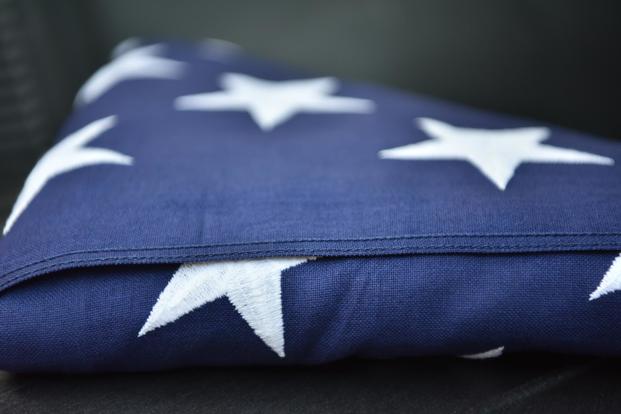Survivors of fallen service members and military retirees faced a crushing defeat this week in the Senate, with a long-pursued effort to repeal the so-called "widow's tax" failing to make it into the defense policy bill.
The sponsors of an amendment to the Senate's proposed National Defense Authorization Act, Sens. Doug Jones, D-Alabama, and Susan Collins, R-Maine, had hoped the measure, which has the backing of 75 senators, would be included in the bill approved Thursday.
Instead, Senate Armed Services Committee Chairman Jim Inhofe, R-Oklahoma, raised objections to a call for unanimous consent on the proposal, citing financial concerns and an unnamed senator's objections.
"There has to be a fix, but it can't be on this bill," said Inhofe, who is among the 75 senators who supported the amendment. "The reason it can't be on this bill is because it has a mandatory spending [requirement] that has no offset."
But Inhofe also gave hope to those who want to dismantle the deduction taken from survivors who receive payments under both the Department of Defense's Survivor Benefit Plan (SBP) and Dependency and Indemnity Compensation from the Department of Veterans Affairs.
Currently, those who receive both see their SBP payments reduced by a dollar for each dollar they get in DIC.
"What we can do is go ahead and do what is necessary with this very popular cause, and I will be standing with the senator from Alabama to make sure it happens," said Inhofe, who, in his chairman position, is in a position to champion a stand-alone bill.
During the proceedings Thursday, Jones said he was "incredibly frustrated that [his] request to pass the military widow's tax repeal was blocked."
Related: Could the Military ‘Widow’s Tax’ be Abolished? Here’s the Next Hurdle
"This is sadly indicative of a bigger problem we have in the Senate, where we don't vote on amendments and the only bills that can get to the floor for a vote are simply the result of back-room political deals," Jones said.
He promised to work with House leadership to get a fix into its version of the defense policy bill.
Military and veterans support organizations who worked to repeal the offset expressed disappointment following the vote Thursday, but said they had hope the measure could still be resolved this year.
An estimated 65,000 survivors of military members and retirees are affected.
"As a nation we have broken a contract with these widows," retired Air Force Lt. Gen. Dana Atkins, president and CEO of the Military Officers Association of America said in a release. "And while more than 350 members of the House of Representatives have said it's time to put an end to this offset, a political stalemate over funding could derail our best efforts again ... let's find a solution that once and for all ends this terrible wrong."
Critics of the offset say that survivors shouldn't pay a penalty on payments that are similar to a life insurance policy. Active-duty personnel are included in the Survivor Benefit Plan without paying premiums as part of their benefits package. Retirees pay up to 6.5% of their gross retired pay, depending on the amount of coverage. With the maximum input, their loved ones receive up to 55% of their retirement pay each month.
-- Patricia Kime can be reached at Patricia.Kime@Military.com. Follow her on Twitter at @patriciakime.












